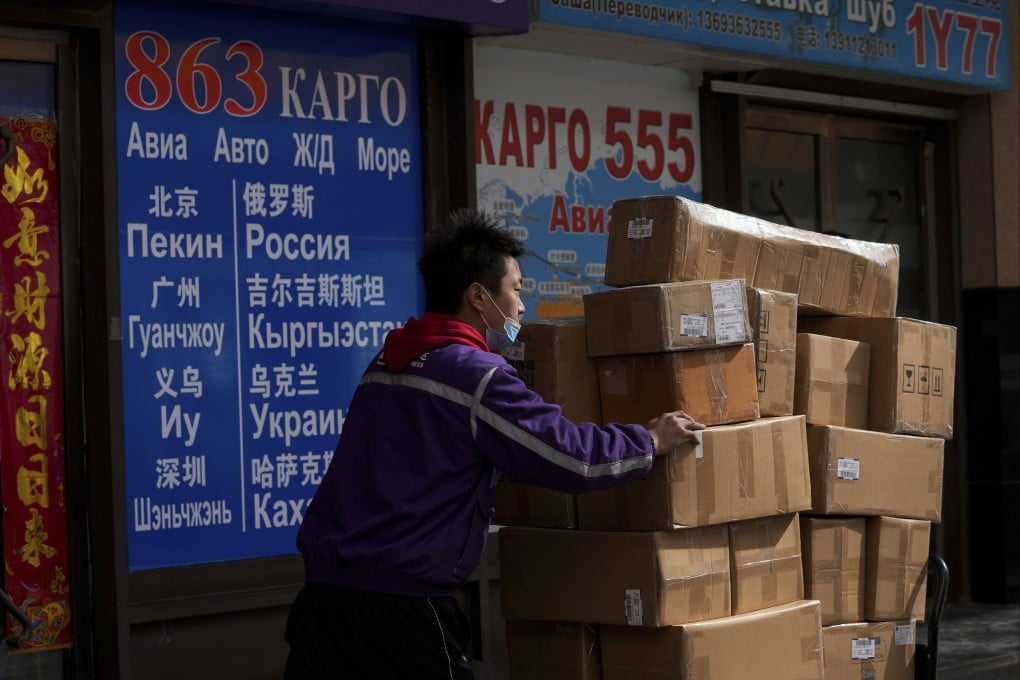Stymied by the West, Russia is getting critical semiconductors from mainland China, Hong Kong
- With one-year anniversary of Ukraine invasion three weeks away, a US trade group says ‘China and Hong Kong have successfully replaced other countries as chip suppliers’
- China accounted for more than 36 per cent of Russia’s overall imports and 20 per cent of its exports in 2022, Institute of International Finance says

Russia boosted its trade with mainland China and Hong Kong last year as Moscow made a tactical pivot to the two markets for chip imports while diversifying away from allies of the United States amid sanctions following the invasion of Ukraine, according to a US-based trade group for the global financial services industry.
China, Hong Kong and Turkey have supplanted countries in the European Union as Russia’s top trading partners, the Institute of International Finance (IIF) said on Wednesday.
Washington and its allies have responded to Russia’s aggression by imposing sweeping restrictions to block its access to advanced semiconductors, aerospace products and luxury goods since last year.
We believe [Washington’s] objective is to prevent Russia from accessing chips, particularly advanced technologies or those suitable for military use
“Russian authorities countered sanctions with swift macroeconomic measures preventing a financial sector collapse, increasing government spending and limiting access to statistics, including trade,” the IIF said. “Importantly, Russia focused on rebuilding value chains severed by sanctions.”